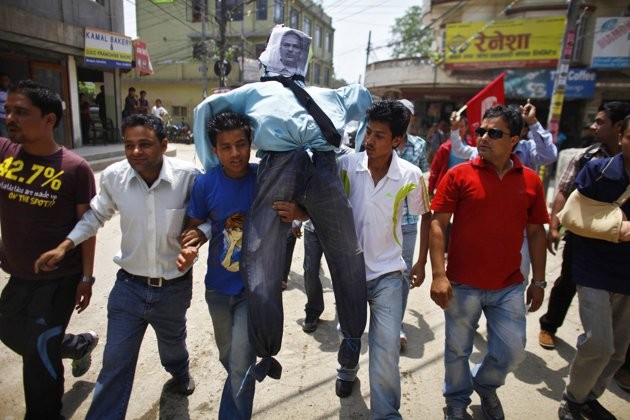UN leader Ban Ki-moon raised fears about Nepal's stability after the country's divided parties failed to meet a Sunday deadline to write a new constitution.

Ban "is disappointed that Nepal's Constituent Assembly has expired without the adoption of the long-awaited constitution," UN spokesman Martin Nesirky said Monday in a statement.
"Nepal has entered an uncertain constitutional and political period," the UN warned.
"The government and the political leaders, as well as leaders of various communities, need to demonstrate the courage and wisdom to come together to address the challenges the nation faces," added the statement.
Prime Minister Baburam Bhattarai announced Sunday that the country's parliament, elected in 2008 to write a constitution after a decade of civil war, would be disbanded and new elections held in November.
"The United Nations, which has closely supported the peace-making and reform process in Nepal over many years, shares the deep regret felt by the Nepali people at this time," added the UN statement.
Ban's spokesman said "a political consensus on the way forward is essential to ensure stability and continuity. The work of constitution-making should resume without delay, building on what has so far been achieved, and the appropriate legitimate and representative mechanism for this should be found through consensus."
"These decisions will require flexibility, creativity, and above all the willingness to set aside lesser differences in the national interest," the statement added.
Ban called on "all political parties and stakeholders to reaffirm their commitment to the spirit of the Comprehensive Peace Agreement and safeguard the achievements of the past several years."
An estimated 16,000 people died in the 1996-2006 civil war. Rival parties had since then been trying to create a new secular, democratic republic following the abolition of Nepal's centuries-old Hindu monarchy after Maoist rebels gave up arms and won the 2008 elections.
























